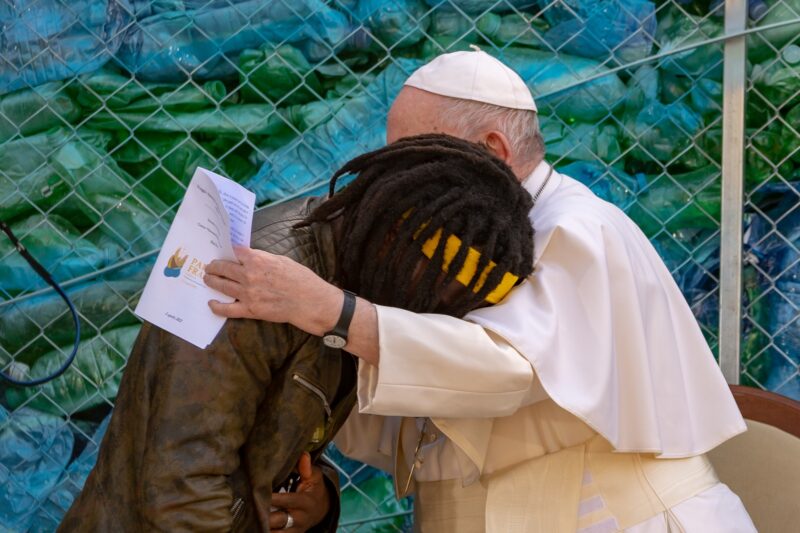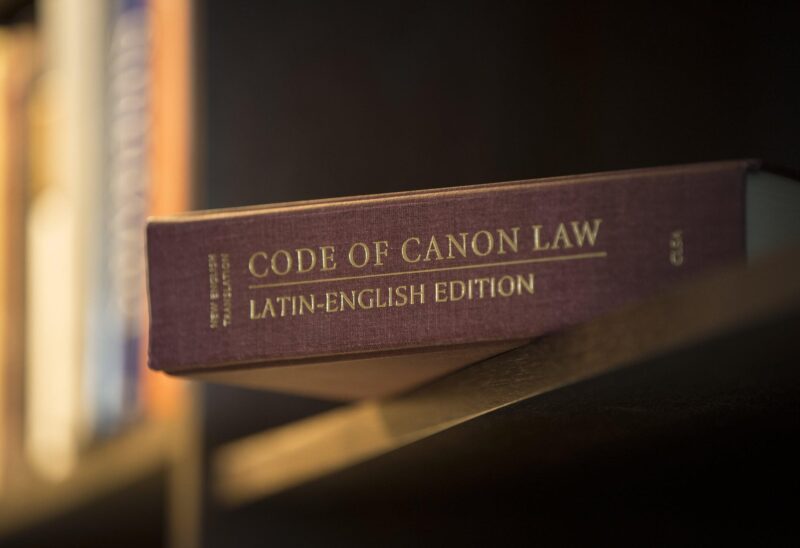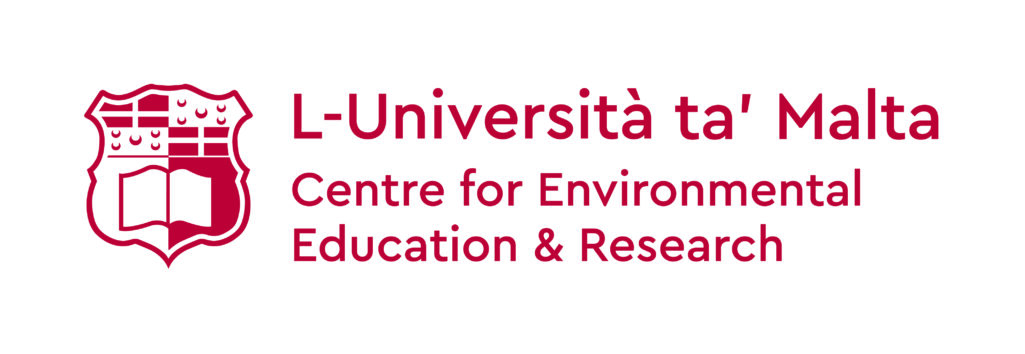
The Pastoral Formation Institute is licensed by MFHEA,
(Licence #: 2013-FHI-023) as a Further and Higher Educational Institute.
The Award in Introduction to Mixed Migration is accredited at the EQF/MQF Level 7.
Migration is a reality that affects everyone in our societies. It is a subject of intense debate, yet often little is known about the complex realities migrants experience. The course, offered in collaboration with the Migrants Commission, will introduce participants to the realities of migration, with a particular focus on mixed and forced migration. The fundamental aim of this course is to make the process of addressing migration-related issues become one rooted in hospitality rather than fear, guided by the Roman Catholic tradition and its teachings, with an emphasis on nurturing a culture of encounter.
• Professionals working with migrants and need specialised knowledge to better serve the people they work with.
• Others interested to work in the field of migration, human rights and humanitarian work.
Target Audience`s Age: 19+
Lectures will be held on Mondays from 17:00 to 20:00
| Date | Session |
| 5th February 2024 | Introduction and Definitions: Foundation Basics |
| 12th February 2024 | Human Rights Perspective |
| 19th February 2024 | Globalisation and International Development |
| 26th February 2024 | Security Perspective |
| 4th March 2024 | Social Justice Perspective |
SESSION 1: INTRODUCTION AND DEFINITIONS: FOUNDATION BASICS
In this session, participants will acquire an understanding of the fundamental terminology employed in the context of access to benefits and services, particularly in relation to one’s protection status or lack thereof. The session will delve into the key factors compelling individuals to migrate, eligibility for lodging an asylum claim, and the criteria distinguishing a claim for International Protection from other claims. Participants will engage in a discussion of the following questions to explore these areas:
- Why is it essential to comprehend these definitions?
- Why do these definitions frequently face disputes or challenges?
- What are the historical or foundational roots of these definitions?
International and national protection statuses are granted based on specific criteria, and they may not encompass all the reasons prompting individuals to seek safety from harm. These definitions often give rise to contentious debates due to their significant implications for people’s lives, sometimes resulting in adverse consequences. For example:
- Who qualifies for protection, and what are the five grounds for international protection?
- Is family reunification an automatic process?
- Can fleeing from the dire consequences of climate change, including droughts, economic hardship, and poverty, be considered grounds for protection?
SESSION 2: HUMAN RIGHTS PERSPECTIVE
In this session, participants will delve into the Human Rights perspective, emphasizing that Human Rights are universal, yet real-world human rights violations remain prevalent. It is noteworthy that policies and practices related to migration often run counter to established human rights standards. The concept of the “right to have rights” is frequently a subject of debate, with rights even being called into question by the very politicians responsible for ensuring them. Civil society organizations anchor their efforts in a rights-based approach, upholding the binding agreements to which States have committed. Nonetheless, fundamental rights are systematically denied to migrants and asylum seekers, even within the broader European Union. This raises the question: are the European Convention on Human Rights and the EU Charter of Fundamental Rights (CFR) genuinely binding, or are they merely ideals?
Furthermore, we need to contextualize the Rights-Based Approach and the expectations it generates within the contemporary landscape of transnational social connections, diaspora communities, and the digitalized world we now inhabit, where relationships are no longer confined by national borders or identities. We will also discuss the “Paris Syndrome” in relation to the topics mentioned and the necessity of distinguishing between ensuring access to rights for all and acknowledging the expectations and realities faced by migrant individuals, including asylum seekers, upon their arrival in the European Union. As a case study, we will present and discuss the issue of unaccompanied children regularly going missing within the European Union, underscoring these troubling contradictions.
SESSION 3: GLOBALISATION and INTERNATIONAL DEVELOPMENT
Understanding the intricate historical context is paramount for interpreting present geopolitical scenarios and contemplating future predictions that carry a grim outlook. For example, it is projected that by 2050, an additional two million people will require food, signifying a 56% increase from 2010. Furthermore, 40% of the Earth’s land is arid, and rising temperatures are set to exacerbate this issue, rendering entire regions, like the Sahel, uninhabitable. This is a significant driving force behind the ongoing land acquisitions, whether by nations or billionaires. Although climate change is not yet recognized as grounds for international protection, it is widely anticipated to be a major catalyst for future wars, forced displacement, and migration, and this could unfold within our own lifetimes. The ongoing ravages of wars further contribute to these already catastrophic scenarios.
In this session, we will explore the interconnectedness of climate change, food (and water) security, and conflicts, drawing examples from Darfur, Syria, Yemen, and Ukraine. We will also briefly touch on International Development thinking from the migration perspective, underscoring the often overlooked and missed opportunities presented by diaspora communities. We will discuss our own experience of emigration as Maltese, serving as a case in point.
The UN Secretary-General’s Report “Our Common Agenda,” published in 2021, highlights the breakdown of trust at both the local and international levels as a major area of concern. Commitment 6 seeks to address this by urging the international community to commit to building trust. While the report primarily focuses on international relations, it also underscores trust as a shared underlying issue at the national level. Commitment 6 places emphasis on “envisioning the future together,” aligning with Pope Francis’ chosen theme for the World Day for Migrants and Refugees 2023.
Participants will also gain insight into the 17 Sustainable Development Goals (SDGs), with a specific focus on SDG 10, which aims to reduce inequalities among populations, with particular reference to migrant communities, and underscores the need to strengthen community ties for resilient futures.
SESSION 4: SECURITY PERSPECTIVE
In the past decade or so, the discourse surrounding security has taken centre stage in public discussions, with politicians and far-right groups often employing it as the dominant narrative when addressing migrants, especially asylum seekers attempting to reach European countries. Regrettably, this narrative frequently dehumanizes migrants. While security issues are undeniably important and legitimate threats exist, the evidence indicates that the direct link between individuals seeking international protection and security threats is often more populistic than evidence-based. Such discourse is often underpinned by racist and racialized arguments, as well as xenophobic sentiments influenced by a form of “orientalism.”
While national security is undoubtedly a valid concern, the question arises: are those arriving by boat truly a threat? The European Union has faced criticism for evolving into a ‘Fortress Europe’ in many respects, one of which is adopting a more defensive approach to border management. In this session, we will investigate the genuine threats to both national and European security. We will also explore whether irregular migration is indeed the core threat or if it is a convenient scapegoat that politicians employ within the broader context of geopolitical conflicts and trade negotiations.
SESSION 5: SOCIAL JUSTICE PERSPECTIVE
In this session, participants will explore the longstanding tradition of Roman Catholic Church social teachings, which encompass ways of welcoming and integrating migrant and refugee communities, as well as all minority groups. These teachings underscore the responsibilities that societies, communities, and their cultures bear towards these communities, and they provide insights into what integration should entail from a Roman Catholic perspective.
Throughout this session, participants will gain an understanding of Catholic Social Teaching and the concept of Integral Human Development, and why Pope Francis places such importance on it. This session will also acquaint participants with Catholic Social Teaching as it pertains to migrants and refugees, with a focus on specific circumstances within the Maltese context. Moreover, participants will engage in discussions about the significance of Catholic Social Teaching and how it can be applied at a pastoral level.
This section of the course will also provide a more in-depth exploration of the concept of ‘Integral Human Development’ and its evolution as a concept deeply rooted in the Magisterium of Vatican Council II and as developed by Pope Paul VI, Pope John Paul II, Pope Benedict XVI, and Pope Francis. Participants will come to understand how Justice underpins these teachings and shapes the relationships we are called to establish and nurture. Catholic Social Teaching, with its emphasis on Integral Human Development, informs Christians about our existential role and purpose on this planet: to become stewards of the Earth and of each other.
During this session, participants will learn about issues such as climate change, economic justice, food security, and how these intersect with forced migration. It will be highlighted that it is a mistake to view these issues as separate problems. Justice (and Truth) serves as the common root problem from which solutions can be derived.
Furthermore, participants will explore the specifics of providing pastoral care for migrants and refugees through the lens of Catholic Social Teaching, while employing the concept of intersectionality as a tool and approach. We will discuss how the notion of ‘Integral Human Development’ can help individuals appreciate the inherent interconnections that are inevitable for the human person.
There are TWO exit certificate options:
Certificate of Attendance
A Certificate of Attendance will be awarded to students that attend at least 80% of all contact hours for this course.
Certificate of Achievement
A Certificate of Achievement will be awarded to students that attend at least 80% of all contact hours for this course and pass from written assessment.
Qualifications: Applicants must possess an MQF level 6 or higher qualification.
Language: Applicants must be proficient in English.
Digital: Applicants must how to access the internet and use a word processor.















